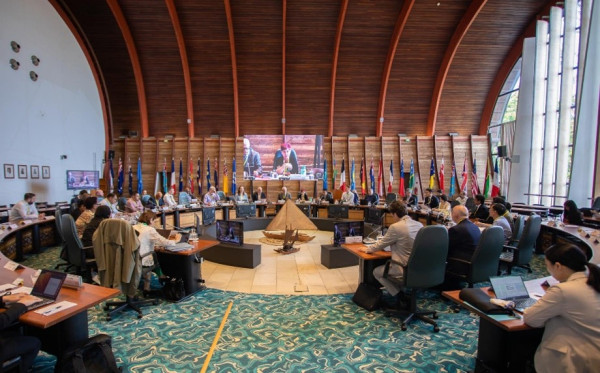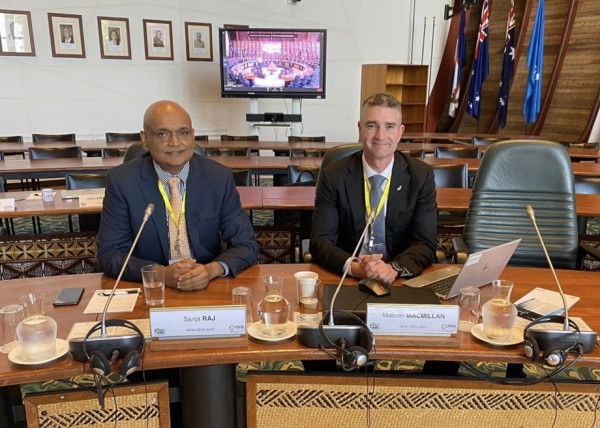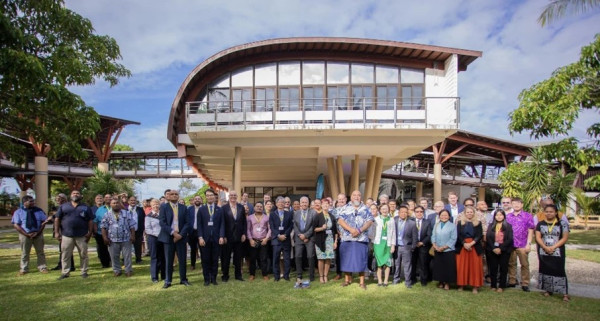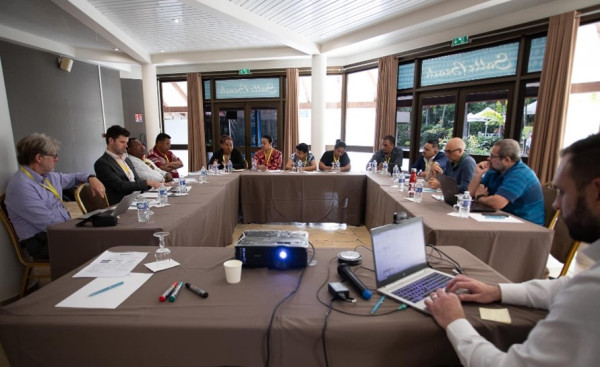Attending PASC and PISC in New Caledonia
We’ve been working closely with standards bodies from across the Pacific at two recent international forums – PASC and PISC – to help share, grow and collaborate.

PASC General Assembly and presentations by ISO and IEC in New Caledonia
Introducing PASC and PISC
The 45th Pacific Area Standards Congress (PASC) forum and General Assembly in New Caledonia in late May and early June 2023, brought together standards body representatives from across the 28 Pacific Rim nations. The General Assembly is a necessity for voting in new members, discussions on PASC charter, membership requirements, and agreeing strategic priorities.
Alongside this was the Pacific Islands Standards Committee’s (PISC) 2nd forum. PISC is a new initiative, established in 2021, born out of a multi-government Pacific Islands Forum quality infrastructure initiative made up of 18 Pacific nations.
While both groups sound similar, members’ specific focus and needs can vary significantly. PASC members include large countries like Canada, the US, Australia, and China while PISC members predominately represent much smaller nations, namely the Cook Islands, Federated States of Micronesia, Fiji, French Polynesia, Kiribati, Nauru, New Caledonia, Niue, Palau, Papua New Guinea, Republic of the Marshall Islands, Samoa, Solomon Islands, Tonga, Tuvalu, Vanuatu, with New Zealand and Australia representing the largest nations in this group.

NZ Standards Executive Sanjai Raj and SNZ National Manager Malcolm MacMillan
PASC
PASC’s primary role is to support the region’s engagement in the international standardisation system for the advancement of economic, societal, and environmental well-being. The Asia-Pacific region has the highest levels of growth in the world and international standards are essential to facilitate trade; spread knowledge, disseminate innovative advances in technology and improve market access for goods and services.
Our Pacific neighbours’ member countries collectively account for 60% of the world’s population, and so giving the Pacific region a strong and influential voice and perspective at ISO, based in Geneva, to complement that of the Americas and European perspectives is important. PASC was established in 1972 and New Zealand has played host to annual general meetings three times, as recently as 2019. This year PASC welcomed the newest members Vanuatu and Tonga, nations in the early stages of implementing standardisation and able to benefit from international expertise.
Malcolm MacMillan, Standards New Zealand National Manager, and Sanjai Raj, General Manager Market Integrity, MBIE attended on behalf of New Zealand and participated in key workshops, discussions, and meetings. Presentations were given by the Secretary Generals of ISO and IEC along with workshops on strategic priorities. What was abundantly clear is the shared focus on climate change with presentations on the subject by us, plus Singapore, ISO, IEC and South Korea.
Malcolm highlighted some of the key projects underway looking to reduce energy use or improve climate resilience including our work on hydrogen adoption, building our EV infrastructure and capability, energy efficiency of appliances, and factoring in climate change impacts in building standards. The forum offered an opportunity for Standards NZ to meet with New Zealand’s Consular General to New Caledonia to discuss local standardisation and conformance and industry and trade issues, with New Caledonia being in a unique position as representatives within the wider Pacific network and also subject to the use of French standards.

Delegates to PASC and PISC in New Caledonia 2023
PISC
PISC predominately represents the distinct needs of smaller developing nations which are likely to be those most heavily impacted by sea level rises anticipated with climate change. The need for economic development and climate resilience is a stark reality for them. Other priorities include building and construction standards, particularly important given increasing extreme weather events, and standards for food and beverage, with some of their first and most recent development work having focused on regional standards for building energy efficiency and cassava processing and distribution.
Its members are officials from national standards bodies, and where these do not exist, the relevant government agency involved in standardisation, metrology and conformity assessment.
Collectively they recognise how standardisation can offer tried and tested solutions, plus help open pathways for international trade. Being a fairly new entity, we had the pleasure of being able to assist in work to refine PISC’s governance, institutional arrangements, membership rules and administrative processes.
One key takeaway was an appreciation of the significance of the use of New Zealand standards and Joint Australian and New Zealand standards in these smaller Pacific countries, and just as with our domestic audience they are eagerly monitoring the development of standards like NZS 3910 Conditions of contract for building and civil engineering construction due to publish later this year.
Standards Australia provided significant support for this forum, including providing secretariate resource and workshop facilitation, training, and management contribution to the forum’s agenda and activities.
At the heart of these forums lies a willingness to share and support other nations, whose prosperity built through following good practice ultimately helps play a part in our own economic well-being. Principles that echo the very nature of standards development and use.

Committee work with PISC members
